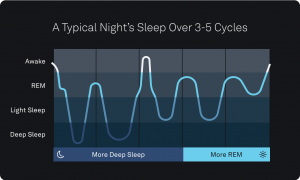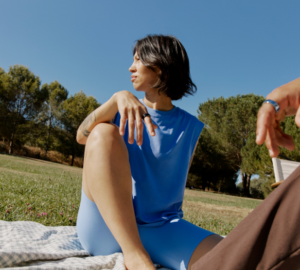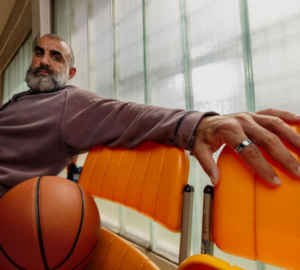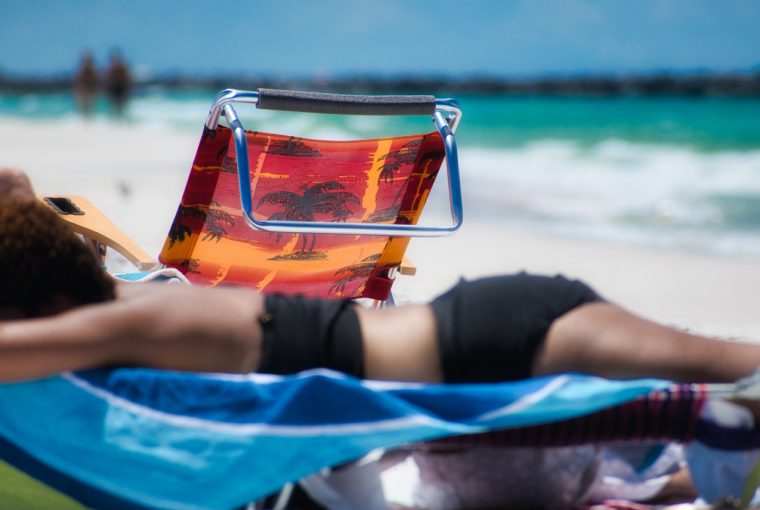Depending on where you live, you may notice differences in how you sleep during the summer versus the winter.
In an analysis of data from the Oura Community, we discovered how summer impacts our sleep:
- Time spent in bed decreases
- The % of REM sleep decreases
- The % of deep sleep increases
- Nighttime HRV averages trend higher
- Nighttime heart rate averages run lower
- Nighttime respiration rates are higher
What causes these differences and what can you do about it to make sure you’re getting enough sleep all year long?
The Root Cause
Oura’s Lead Scientist, Heli Koskimäki, shares some insight: “When temperatures rise and it’s lighter for longer outside, we tend to spend less time in bed, cutting our total sleep time short. When we sleep less, we shift the balance of our sleep stages towards deep sleep and away from REM sleep which tends to occur more in later sleep cycles.

The changes in our heart rate, respiration, and HRV, however, are more mysterious.
Oura is actively working with the research community to start to uncover how the seasons may cause changes in our physiology that are driven by biological, societal, and lifestyle shifts. As the seasons change, we naturally spend different amounts of time outside, engage in varying physical activities, and encounter notable events like summer holidays or flu season. Even simple habit changes, like having a few more drinks or staying up later, can cause an increase in heart rates. We also can see that habits aren’t the only thing driving changes – some shifts may be natural body reactions to seasons that we can use Oura to help us understand.”
Looking for tips to help your body adjust? Read on.
How Summer Light Impacts Sleep
Light and dark naturally help our bodies regulate sleep by encouraging us to stay awake when it’s light outside and fall asleep after the sun sets.
During winter, there’s a shorter window of natural light and we may not be able to get outside while the sun is still up. Without sufficient exposure to natural light, it’s more difficult to regulate our circadian rhythm, leaving us inclined to sleep longer.
On the other hand, during summer, we have ample exposure to natural, bright sunlight which cues our body to stay awake…sometimes longer than we’d like.
How do we take advantage of seasonal light?
Check out these tips from Dr. Rebecca Robbins:
- Use summer sunshine to your advantage: “The best times for light exposure are in the morning when we wake up, and in the afternoon when we all experience a slight dip in alertness. Walking outside will give you a boost of energy and avoid having to rely on energy drinks or caffeine that may interfere with your sleep that night.”
- Ensure your bedroom is dark: “If the sun sets later, you may experience a delay in when you feel sleepy as well. To encourage your body to produce melatonin, our body’s sleepiness signal, earlier try making your sleeping environment as dark as possible to help your body wind down.“
How Summer Temperatures Impact Sleep
It turns out that our bodies have a “goldilocks” relationship with temperature; if we want to get some sleep, our bodies need to hit their temperature sweet spot — not too hot, not too cold. As your body prepares for sleep, it drops your core body temperature by a few degrees and brings it back up just before awakening.
If something interrupts that process, like a change in ambient temperature, it can interrupt your sleep. In fact, warmer sleeping environments (75 degrees Fahrenheit or higher) have been shown to cause fragmented sleep and more disturbing dreams and nightmares. On the other hand, a cool sleeping environment (70 degrees F or lower) is associated with a shorter time before falling asleep and less sleep fragmentation.
As a result, hotter summer temperatures can cause sleep disruptions if your body can’t cool itself down.
To combat summer heat, try these tips from Dr. Rebecca Robbins:
- Change with the seasons: “If possible, change your bedding and pajamas with the season to use breathable, light fabrics for summer. Avoid heavy comforters or blankets. Choose pajamas that are made from breathable fabrics that wick moisture, or, if you’re comfortable, wear nothing at all!”
- Try a cool down routine: “If you toss and turn from being too hot, get out of bed, sit on the floor or a chair and practice mindfulness meditation or progressive muscle relaxation (clenching and releasing muscle groups). If you are still too hot and cannot cool down, take a cool shower and return to bed only when you are cool and ready to fall back asleep.”
- Know your climate: “Maintaining a cool sleeping environment in the summer is challenging! Fortunately, many climates do have cooler temperatures at night. If you keep your curtains closed during the day to keep your bedroom cool, then open the windows at night to allow for cool fresh air. Alternatively, a window fan or air conditioning unit can help keep your bedroom cooler.”
References:
[1] Koskimäki, H., Kinnunen, H., Rönkä, S., & Smarr, B. (2019, September). Following the heart: what does variation of resting heart rate tell about us as individuals and as a population. In Adjunct Proceedings of the 2019 ACM International Joint Conference on Pervasive and Ubiquitous Computing and Proceedings of the 2019 ACM International Symposium on Wearable Computers (pp. 1178-1181). [link]




